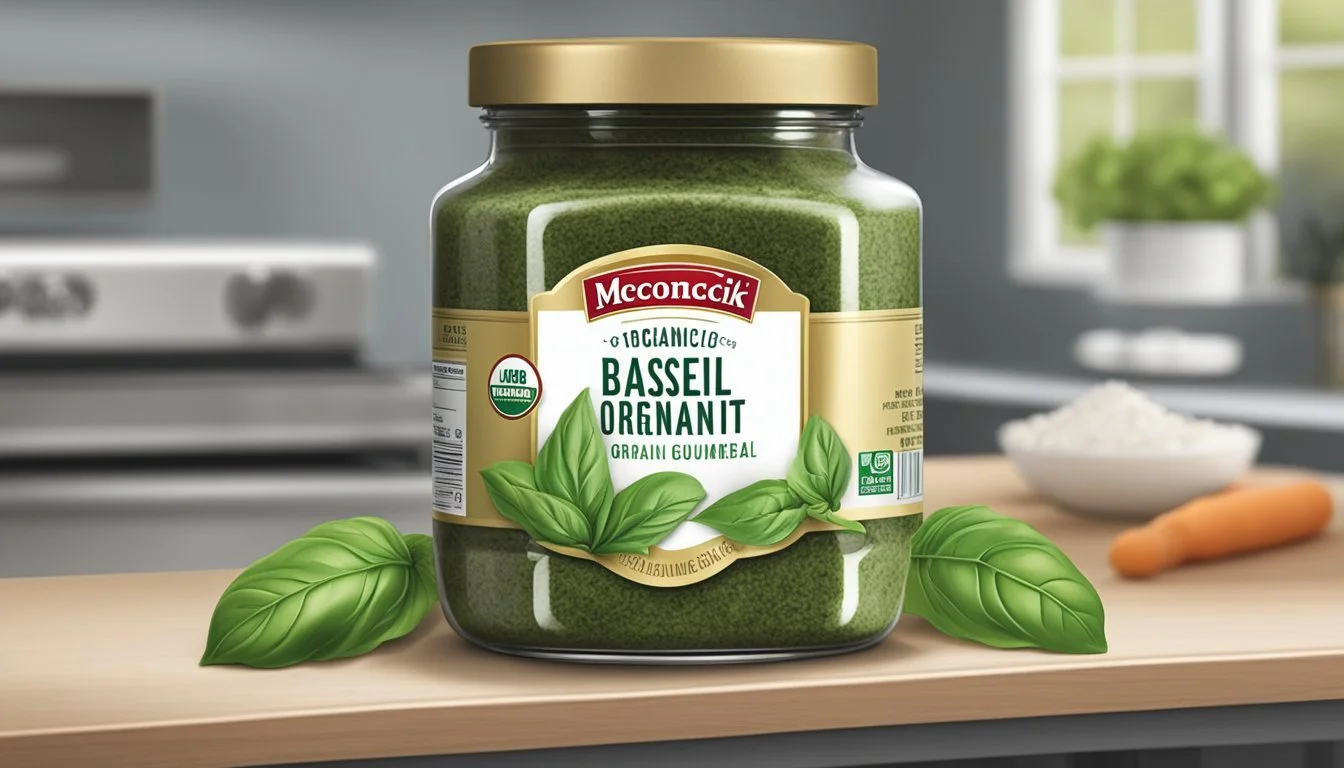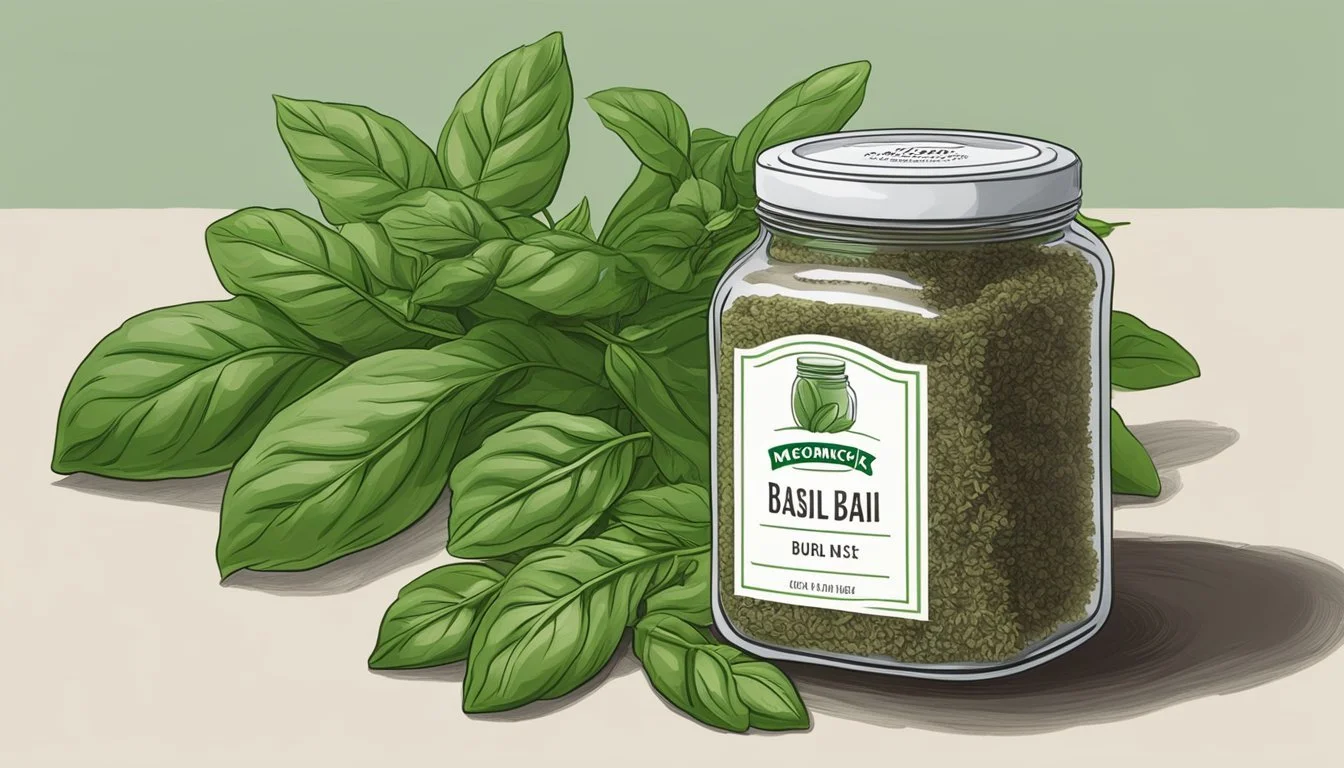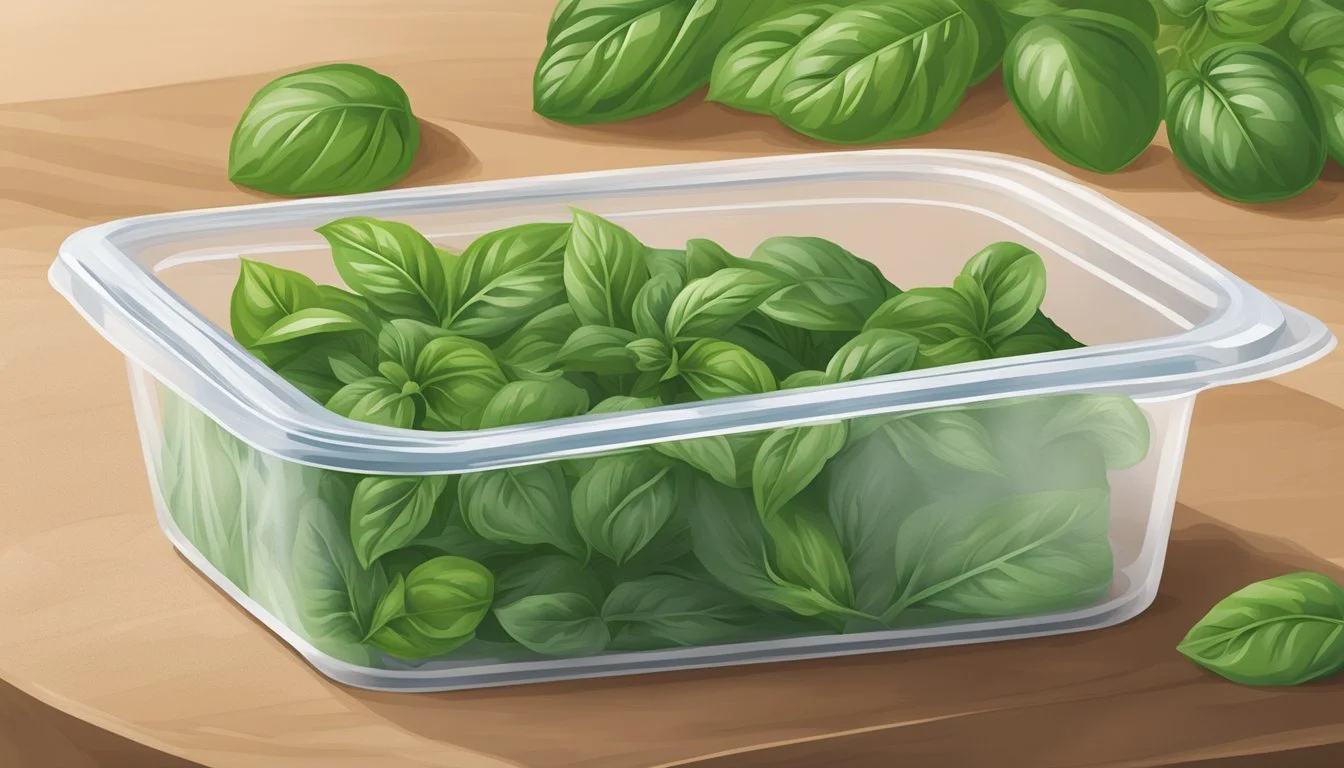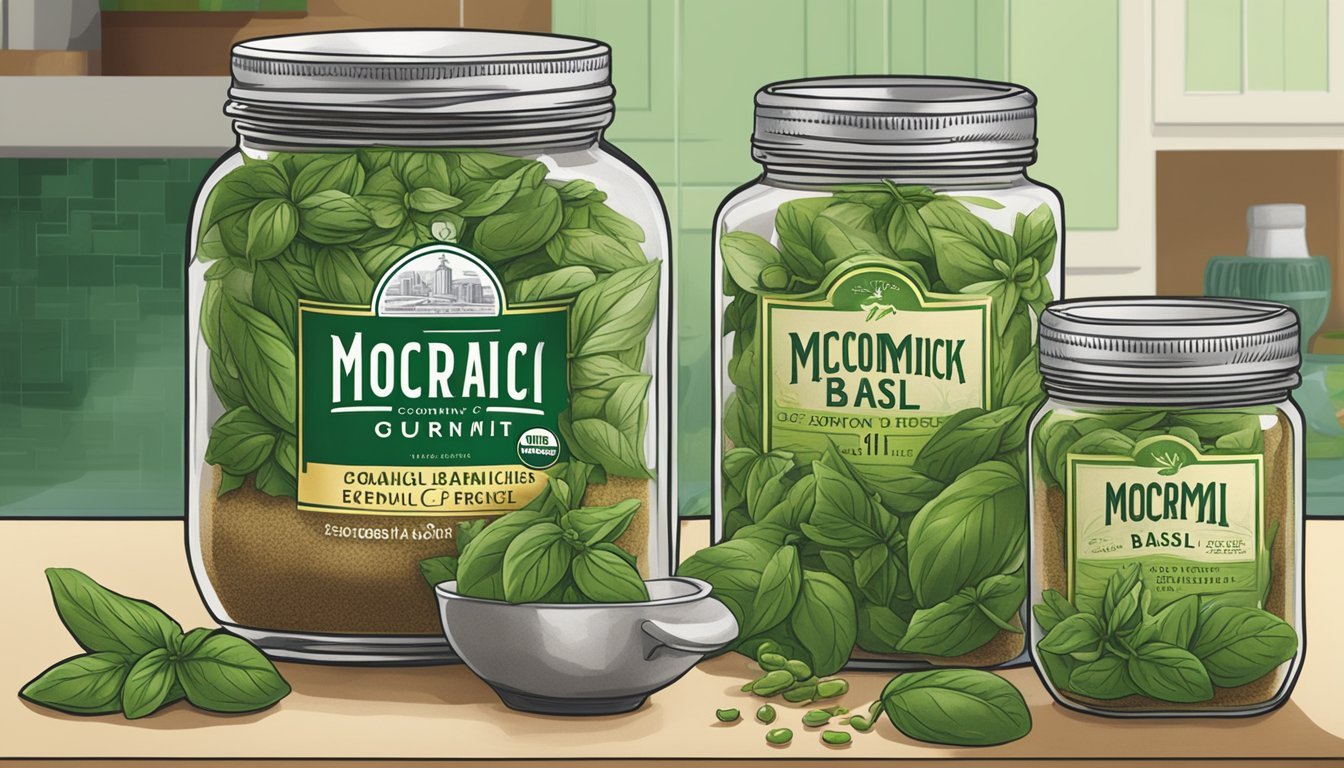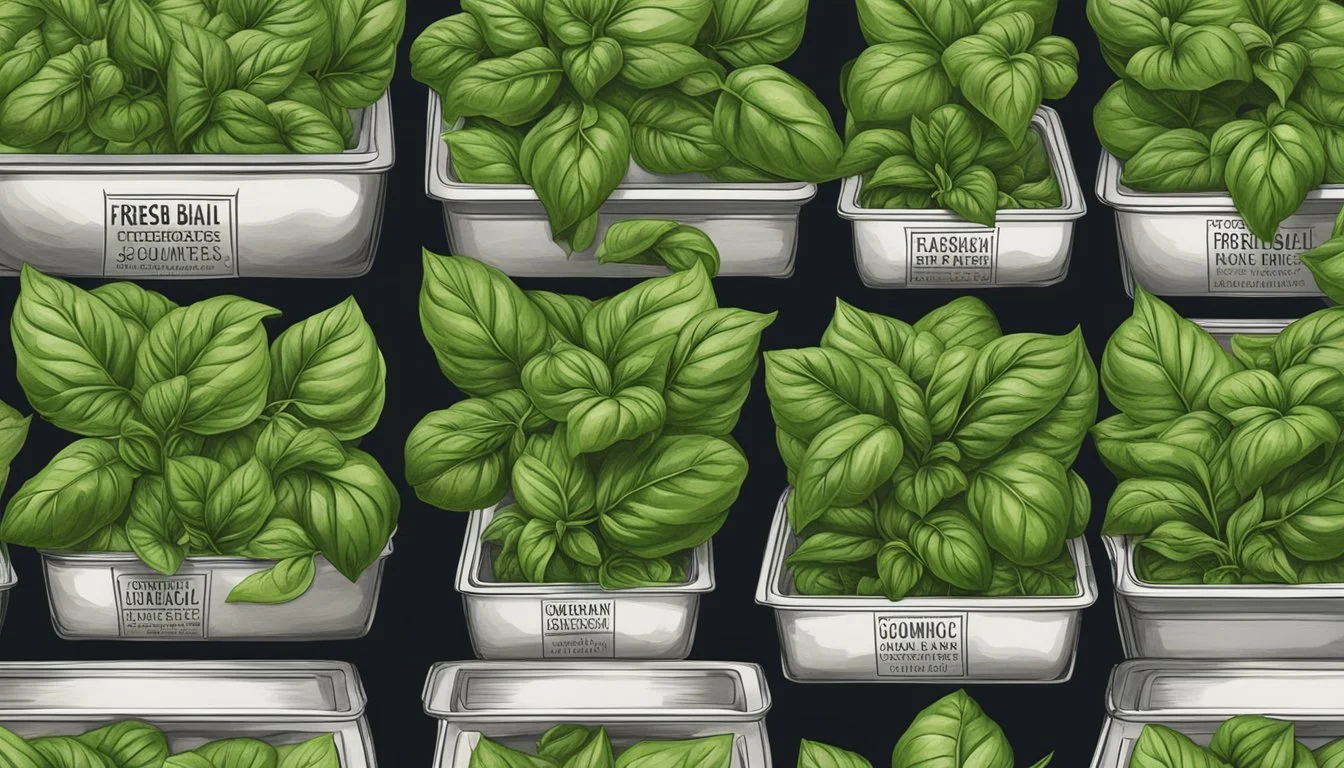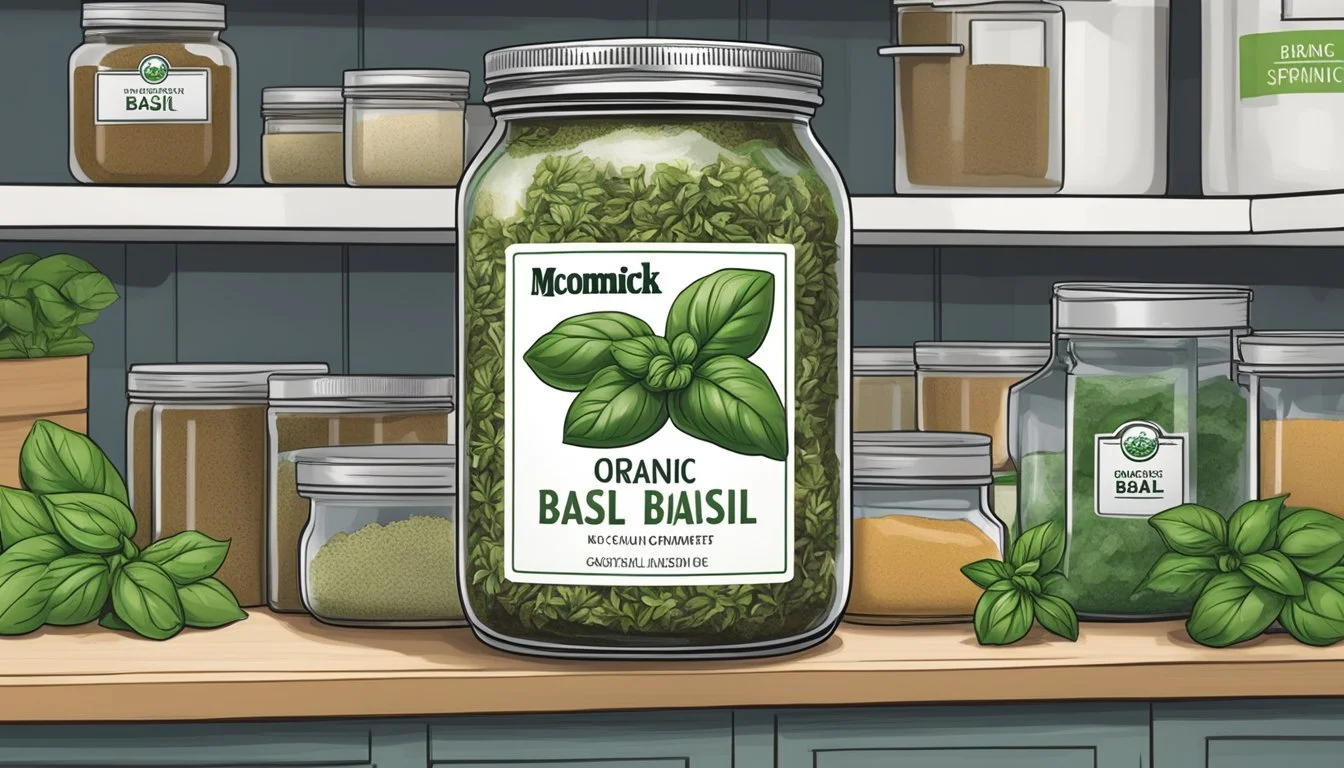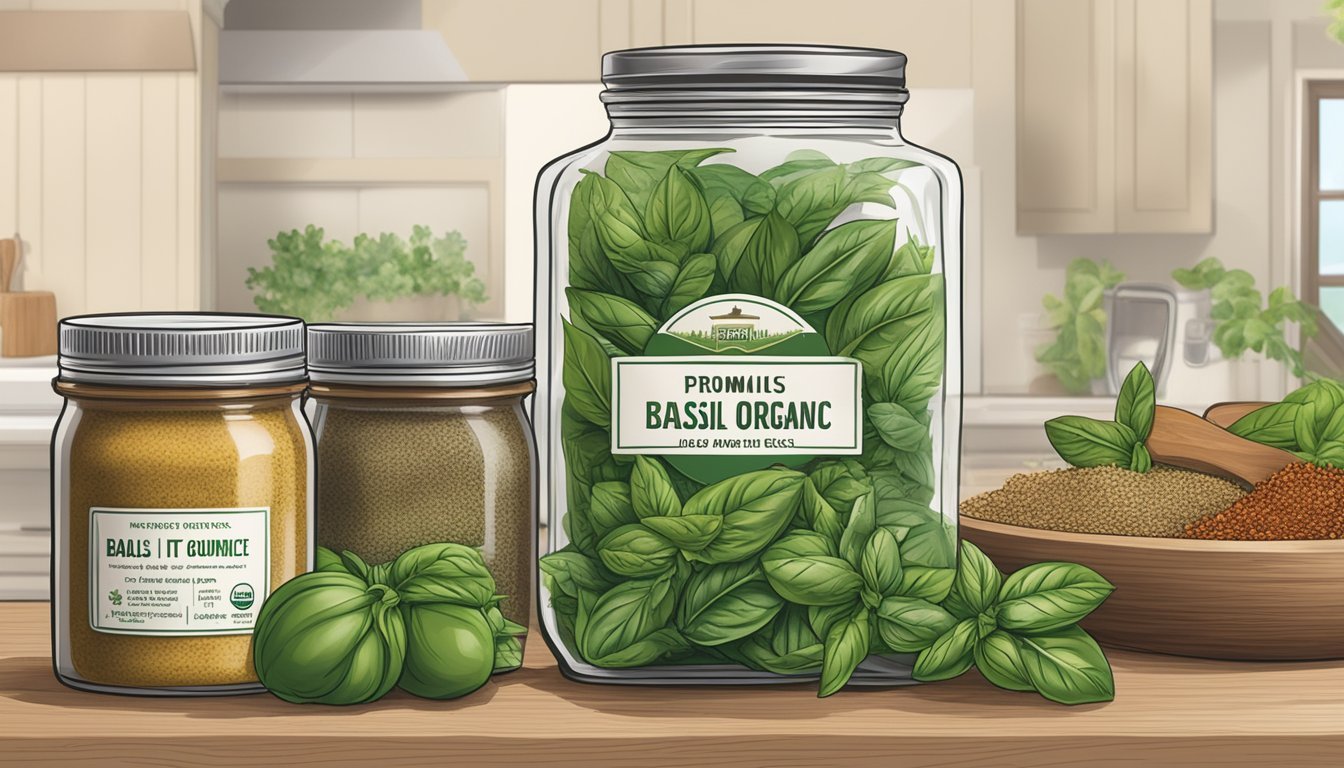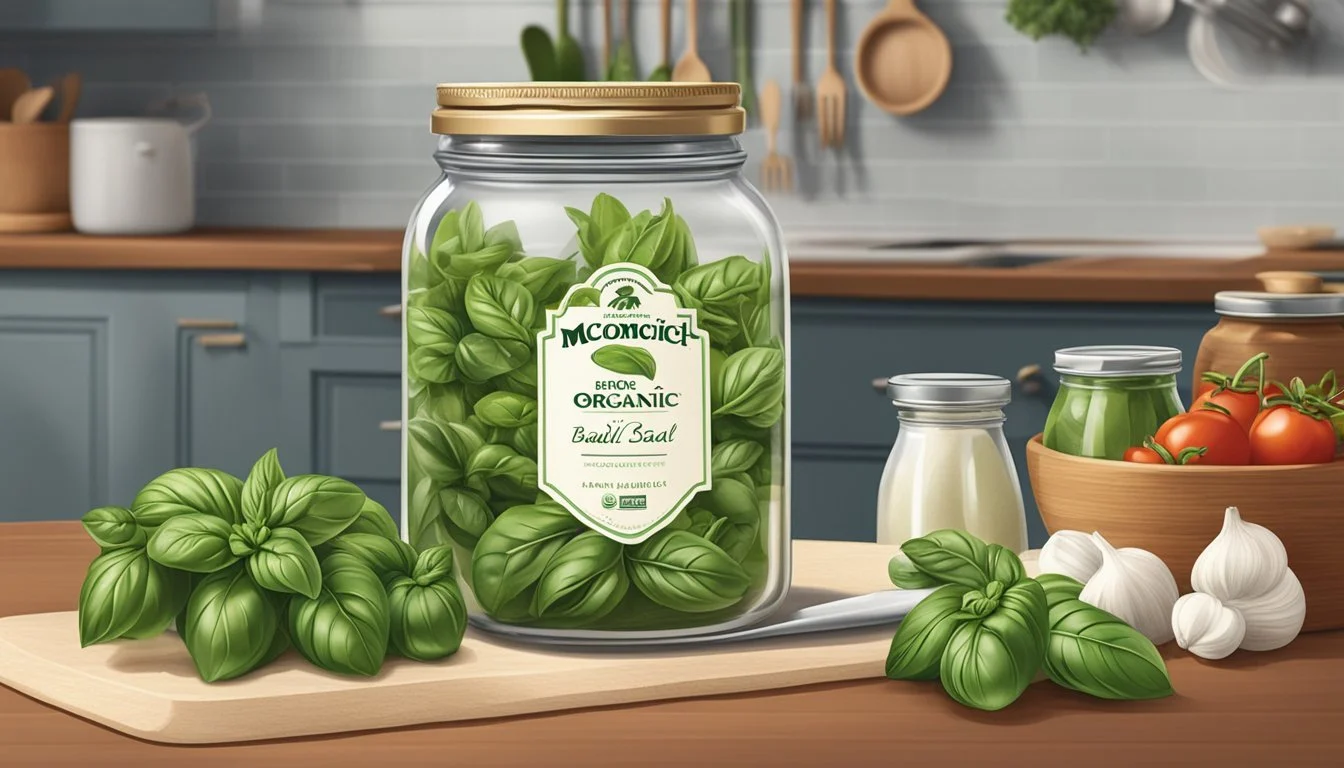How Long Does McCormick Gourmet Organic Basil Last?
Shelf Life and Storage Tips
Basil, a herb cherished for its fragrant sweetness and minty, anise-like flavor, is a staple in kitchens worldwide, particularly in Italian cuisine. When it comes to the shelf life of McCormick Gourmet Organic Basil Leaves, it is essential for consumers to know how long they can expect their basil to retain its quality and flavor. The longevity of basil is influenced by whether it is fresh or dried, as the two forms have significantly different expiration timelines.
Dried basil, such as McCormick's, is favored for its extended shelf life compared to its fresh counterpart. Properly stored dried basil can last for several years. McCormick ensures that their gourmet organic basil leaves are carefully harvested and dried, which helps in preserving their natural green color and essential flavor notes. If stored correctly, away from heat, light, and moisture, the dried basil maintains its quality.
Understanding the shelf life of these aromatic leaves can aid in reducing waste and ensuring that dishes are seasoned with the full, intended potency of the herb. For McCormick Gourmet Organic Basil Leaves, consumers can expect a shelf life of 2-3 years, maintaining the minty and sweet notes that make basil a beloved ingredient in numerous culinary creations.
Understanding Basil
Basil is a highly esteemed herb known for its fragrant leaves which are essential in many culinary traditions. Recognized for its vibrant flavor and aromatic presence in dishes, basil also offers nutritional benefits, making it a favorable addition to a variety of recipes.
Botanical Profile
Basil (Ocimum basilicum), part of the mint family, is closely related to herbs like oregano and mint. It is characterized by its glossy green leaves and can vary in flavor and size, depending on the species.
Culinary Uses
Basil is a versatile herb widely used in Italian cuisine, where it provides a minty, anise-like flavor to dishes. It is commonly paired with:
Tomatoes: Enhances the natural sweetness of tomatoes in sauces and salads.
Chicken: Complements the savory flavor of chicken, whether grilled, roasted, or sautéed.
Seafood: Adds a fresh, aromatic touch to various seafood dishes. (What wine goes well with seafood dishes?)
Nutritional Value
Basil leaves are not only valued for their flavor but also for their nutritional content. They contain:
Vitamins: Rich in Vitamin K and containing Vitamin A and Vitamin C.
Minerals: A good source of magnesium, calcium, and iron.
Antioxidants: Basil provides a range of beneficial antioxidants to support health.
Comparing Fresh and Dried Herbs
In the realm of culinary herbs, both fresh and dried variants of basil hold their unique characteristics and uses. Understanding the differences in flavor profile, potency, and texture between the two can greatly influence cooking outcomes.
Flavor Profile
The flavor of fresh basil is vibrant and aromatic, offering a sweet, peppery taste with a hint of mint. It is preferred in dishes where its fresh, bright notes can shine through. Conversely, dried basil exhibits a more muted, earthy flavor due to the loss of some volatile oils during the drying process. While still recognizably basil, its nuance is less pronounced.
Potency Differences
When comparing potency, dried herbs, including dried basil, are usually more concentrated in flavor due to the evaporation of water content. As a general guide:
Fresh basil: used in larger quantities to impart the desired taste.
Dried basil: higher potency, so typically used in smaller amounts, roughly 1/3 of the fresh basil quantity.
Texture Considerations
Texture is another aspect where fresh and dried basil diverge significantly. Fresh basil adds a tender, leafy component to dishes, ideal for garnishes and incorporating into salads. Dried basil, on the other hand, is crumbly and better suited for incorporation into cooked dishes where it can rehydrate and meld seamlessly with other ingredients. Its texture is not suited for finishing dishes where a fresh appearance is desired.
Storing McCormick Gourmet Organic Basil
When storing McCormick Gourmet™ Organic Basil Leaves, it is crucial to consider the environment and packaging to maintain freshness and flavor. Proper storage extends shelf life and ensures the basil remains a vibrant addition to culinary dishes.
Optimal Storage Conditions
McCormick Gourmet™ Organic Basil should be stored in a cool, dry place such as a pantry or cupboard away from direct sunlight and heat. Ideally, the temperature should be consistent to prevent moisture buildup which can lead to clumping and loss of flavor.
Shelf Life Estimation
Pantry: Dried McCormick Gourmet™ Organic Basil has a shelf life of approximately 2-3 years if stored properly.
Refrigerator: Not recommended for dried basil as it can introduce moisture and condensation.
Keeping the basil in its original packaging or an airtight container can maximize its shelf life by reducing exposure to air and other elements that can degrade its quality.
Signs of Deterioration
One should look for the following indicators to determine if the basil has lost its quality:
Color change: Basil that has darkened significantly may be past its peak.
Aroma: A diminished or stale smell indicates the herb is no longer fresh.
Flavor: Taste a small amount; if the flavor isn't robust or is off-putting, the basil should be replaced.
Visual inspection and scent are reliable guides to ensure McCormick Gourmet™ Organic Basil is still good to use.
Factors Affecting Longevity
The longevity of McCormick Gourmet™ Organic Basil and other spices can be extensively influenced by how they are packaged and the conditions they are exposed to after opening. Ensuring optimal shelf life is contingent upon maintaining packaging integrity and minimizing exposure to elements that accelerate degradation.
Packaging Integrity
McCormick Gourmet™ Organic Basil is sold in packaging designed to protect the herb from moisture and air, two factors that can significantly reduce its shelf life. The spice should remain in its original packaging until use, which typically includes an airtight seal. After opening, the user should ensure the package is promptly and securely resealed to maintain freshness, preferably in an airtight container.
Exposure to Elements
The shelf life of an herb like basil is also affected by its exposure to elements such as light, heat, and air.
Light: Prolonged exposure can diminish the potency of the basil.
Heat: High temperatures may hasten the loss of flavor and aroma.
Moisture: Introducing moisture can lead to mold growth, rendering the spice unusable.
To maximize the shelf life of McCormick Gourmet™ Organic Basil, it should be stored in a cool, dark place away from any sources of heat and light, ensuring it maintains its character for up to 3 years.
Preserving the Quality of Herbs and Spices
Maintaining the potency of herbs and spices, such as basil, involves both preventive measures and smart rotation and usage practices. High-quality organic herbs, like McCormick Gourmet Organic Basil, retain their fragrance and flavor when properly cared for.
Preventive Measures
To preserve the quality of herbs and spices:
Storage: Keep them in a cool, dark place away from direct sunlight or heat sources, which can degrade flavor and fragrance.
Containers: Store in airtight containers, such as glass jars with tight-fitting lids, to protect from humidity and oxygen.
Avoid Contamination: Use clean, dry utensils to measure spices, preventing the introduction of moisture.
Rotation and Usage Practices
Check Dates: Use herbs and spices before the expiration date on the packaging for optimal flavor.
Regular Usage: Incorporate herbs like dried basil in cooking regularly to prevent them from lingering beyond their prime.
Refresh Stock: Old spices might not spoil like fresh food, but they lose potency. Replace ground spices every one to three years and dried leafy herbs one to three years as suggested by McCormick.
Maximizing Flavor in Culinary Applications
In the culinary world, the longevity and potency of spices are paramount for achieving the desired taste. Precise timing, compatible pairings, and creative seasoning blends are essential to maximizing the flavor of McCormick Gourmet Organic Basil and any dish it enhances.
Timing of Seasoning
When cooking with basil, the timing of when it is added to a dish heavily influences the flavor outcome. For dishes with a short cooking time, one should add dried basil in the latter stages to retain its aromatic essence. Conversely, long-simmering dishes, such as soups or stews, benefit from basil's inclusion earlier in the cooking process, allowing the herb's oils to infuse throughout.
Quick-cooking dishes: Add basil near the end
Long-cooking dishes: Add basil at the beginning
Pairing with Foods
McCormick Gourmet Organic Basil has a natural affinity for certain ingredients that can be leveraged to elevate various dishes:
Tomatoes: Enhances sauces and salads
Chicken: Perfect for rubs or marinades
Eggplants: Complements roasted or grilled dishes (What wine goes well with grilled dishes?)
One can achieve a harmonious flavor profile by considering these affinities, using basil to accentuate and complement the main ingredients. It's particularly effective in Italian cuisine, where its presence in dishes is both traditional and essential.
Creating Seasoning Blends
To create a well-balanced seasoning blend with basil, one must consider the other spices and herbs that will complement its flavor profile. Here, basil can be the foundational herb to which others are added:
With salt and pepper: Makes a basic yet versatile seasoning
With oregano, rosemary, and thyme: Creates a robust Italian blend
With cilantro and lime zest: Lends a zesty twist for a fresher take
Blending spices and herbs opens up an array of flavor possibilities. When basil is part of a blend, it should be used in a ratio that complements, not overpowers, the other ingredients.
Safety and Health Considerations
When it comes to the safety and health considerations of storing McCormick Gourmet Organic Basil Leaves, understanding the shelf life and identifying signs of spoilage are pivotal. These factors ensure that the herb's consumption remains beneficial and does not pose any health risks.
Identifying Spoilage
Shelf Life: Fresh basil typically lasts 5-9 days, whereas dried basil, such as McCormick Gourmet Organic Basil, has a much longer shelf life, lasting for approximately 2-3 years if stored properly in a pantry.
Mold: One should inspect the basil leaves carefully for any signs of mold, which can present as dark spots or a fuzzy appearance. Mold indicates that the herb has spoiled and should not be consumed. McCormick Gourmet Organic Basil Leaves, when dried and kept in optimal conditions, are less prone to mold growth, but they should still be checked periodically.
Color and Aroma: A noticeable change in color or a reduction in the basil's distinctive minty and anise-like aroma can be indicative of the herb beginning to lose its potency and freshness.
Impact of Consuming Stale Herbs
Herbs like basil do not spoil in the same manner as perishable foods, but their quality diminishes over time. While consuming stale herbs may not necessarily make one ill, they offer diminished nutritional benefits and flavor.
Potency Loss: Over time, dried spices, including basil, gradually lose their potency. This means that they become less effective in delivering the desired culinary impact in terms of flavor, aroma, and potential health benefits.
It is essential to handle McCormick Gourmet Organic Basil Leaves with consideration towards their storage and to monitor them for any signs of spoilage to maintain their quality and ensure they are safe for consumption.
Complementary Herbs and Spices
When considering the McCormick Gourmet Organic Basil's shelf life, it's helpful to know which herbs and spices complement it best. These pairings can enhance the flavor profile of dishes while ensuring the use of basil within its potency period.
Herbal Synergies
Basil pairs exceptionally with a variety of herbs. For example, oregano brings a warm, slightly bitter taste which complements the sweetness of basil in Italian dishes. Mint, with its cool freshness, can join with basil to give a lift to salads and desserts. Rosemary adds a woody aroma and works well with basil in Mediterranean recipes. Sage has an earthy and slightly peppery taste, suitable for meat dishes. Lastly, thyme, with its subtle, dry aroma and a slight minty flavor, can be used alongside basil to add depth to sauces and stews.
Spice Rack Essentials
Moving on to spices, cumin's earthy and nutty flavor enhances the complexity of basil in a dish. Paprika—sweet or smoked—pairs beautifully, imparting warmth and color. Chili powder and cayenne pepper introduce a kick that can be balanced by basil's sweetness, ideal for spicy cuisines. The citrus-like undertones of coriander make it a refreshing companion, while nutmeg and allspice offer a subtle sweetness which can complement basil's flavor in sweet and savory dishes alike. Cinnamon and cloves provide a deep, warm spice that works well in conjunction with basil in spiced desserts and some savory dishes. For a herbal touch, cilantro can provide a lemony zing that contrasts nicely with basil, especially in Mexican and Asian cuisines. Other flavorful additions include dill and parsley in European dishes, garlic for a robust flavor base, and turmeric for earthiness and color.
Frequently Asked Questions
Keeping McCormick Gourmet Organic Basil at its best involves understanding its shelf life and proper storage methods. The following frequently asked questions address how to maintain the quality and when it might be suitable for reuse or repurposing.
How to Measure Shelf Life
The shelf life of McCormick Gourmet Organic Basil, when stored properly in a pantry, generally spans between 2 to 3 years. To ensure the longest possible shelf life, one should store basil in a cool, dark place away from heat, moisture, and direct sunlight. The original packaging is designed to protect the basil from light and air, both of which can degrade quality over time. If the packaging is opened, transferring the basil to an airtight container may extend its freshness.
Reuse and Repurposing of Old Spices
When McCormick Gourmet Organic Basil passes its optimal shelf life, it may lose some of its potency but it doesn't spoil like fresh produce. Instead of discarding it immediately, they can assess its quality by checking for:
Color: Fresh basil should retain its natural green color; significant fading suggests it's past its prime.
Aroma: Basil's characteristic minty, anise-like fragrance should be strong; a weak aroma indicates it's time to replace.
Taste: If the basil has a noticeably diminished flavor, it's likely not suitable for recipes where its flavor is key but may still suffice in recipes requiring subtle seasoning.
If the basil no longer imparts enough flavor in culinary uses, one might consider repurposing it in homemade potpourris or as a natural aromatic for areas such as linen closets.
Conclusion
McCormick Gourmet Organic Basil, like many dried herbs, has an expected shelf life that depends on proper storage conditions. Typically, one can anticipate that dried basil will retain its quality for about 2-3 years. It's essential to store it in a cool, dry place away from direct sunlight to maintain its minty and anise-like flavor profile.
Shelf Life of McCormick Gourmet Organic Basil
Fresh Basil: 5-9 days
Dried Basil: 2-3 years
It is important to note that while dried basil will not spoil in the same way perishable items do, it does lose potency over time. The flavor, which is integral to Italian and other Mediterranean cuisines, can diminish, dulling the impact this herb has on dishes like marinara sauce, minestrone, or tomato-based salads.
When assessing the quality of your dried basil, consider both the color and the aroma. The basil should retain a natural green hue and a fragrant scent. If either of these qualities has noticeably diminished, it's likely time to replace your dried basil to ensure the most flavorful and aromatic cooking results.

